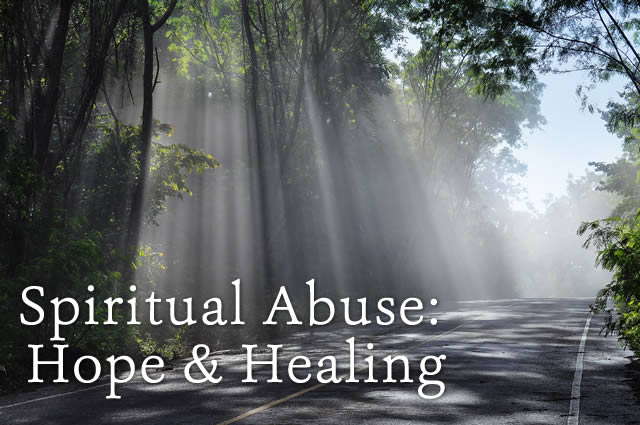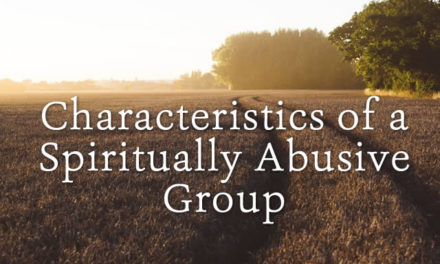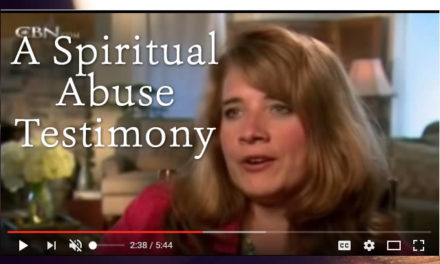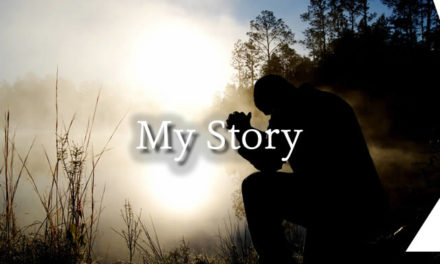Spiritual Abuse: Hope and healing for those who learn the truth and are set free!
By David Henke
People began to call asking for help shortly after our Watchman Fellowship Profile on Spiritual Abuse was written in the mid-90s. Since then I have met with or advised a number of individuals or groups I call dissidents, to educate them on abuse dynamics and put them on a path toward spiritual recovery.
I’d been dealing with high control groups in other ways for many years, but seeing believers turn from confusion and fear to hope and excitement in situations like this has become the most fulfilling aspect of my ministry.
The First Call
The initial call came from a couple involved in a group here in Georgia. Let’s call them the xyz group. The wife described a spiritual leader who was a controlling type personality who showed no mercy, forbearance, or grace. He would doggedly pursue any perceived disloyalty, questioning of leadership, or lack of attendance. He even pursued her husband to his job site to confront him about some disobedience.
I asked the caller if there were others experiencing the same sort of control. She said, “Yes, there are lots of people who have left over similar things.” Later she indicated a couple dozen people were interested in meeting with me.
How should this meeting be conducted? It occurred to me that because the xyz group in question was essentially orthodox in its doctrine I might create the impression that Watchman Fellowship, a ministry to cults, was now going after Christian groups that, for some reason, we didn’t like. That perception, though totally wrong, could close doors to our wider ministry. So the question I faced was how to deal with the abusive spiritual control of people without being perceived as “working against” an otherwise Christian group.
It is extremely important when ministering to those who have been spiritually abused to understand their mental and emotional condition.
Here are a few of the most prominent symptoms:
- Abusive systems train their members to be paranoid and distrustful of outsiders. If you are going to help these people you have to earn their trust with positive and affirming friendship.
- Abuse victims frequently doubt their own thinking. Having been taught one “truth” that has not worked out as expected they are in a kind of spiritual limbo. They frequently don’t know how to evaluate truth claims.
- Members are frequently depressed emotionally and spiritually. They need to hear a message of hope from someone who will care about them.
- Most feel that they are all alone and no one else shares their doubts and fears. In high control groups dissent, questioning, and doubting are treated as the worst kind of sin. People who do question are marked and punished. To avoid the punishment people keep their doubts to themselves. This is foremost among the reasons why they feel alone. One of the most liberating feelings is to learn that they are not, in fact, alone.
- Many are very tired. Legalistic groups will put people on spiritual performance treadmills that have the effect of draining away any passion and energy for service. They need to know that God wants them to get the rest and healing they need. He isn’t calling them to more work when they are not able.
- Relationships are broken, or threatened. Because people cannot deal openly and honestly with problems relationships are impacted with tension and stress. This is especially difficult when it involves family and close friends because the organization represents God and God is more important than family or friends.
- Most feel powerless to change things for the better. Being powerless is learned in high control groups. They want you to depend on the leader or group. They want to control the things that affect the organization’s image, resources, and unity. So they condition their followers to look to them as God’s authority, to over-commit their time and money, and never question. All this leads to a loss of will to think and act independently in one’s own spiritual self-interest.
Person to Person Contact
There was an apprehension among some that the meeting would be infiltrated or spied upon by leadership of the xyz group. To ease the fear, invitations were by word of mouth only, and no one came who was not invited, which gave a sense of relief to those concerned.
To provide further assurance I asked all present to raise their hands if they agreed to keep all our discussions confidential. This is very important for people who are fearful of retribution that might be imposed on them or their family. All raised their hands.
The homeowner started our meeting in prayer. I indicated my purpose and goal for the evening was to help those present by describing and defining legalism, spiritual abuse, and mind control. Each individual could decide whether or not anything I said fit his/her experience. I was not going to say a word, positive or negative, about xyz group; I was not there to approve or disapprove of anything.
The rest of the evening was spent describing legalism, spiritual abuse, and mind control as a pyramid structure with three levels of a performance-based attempt to gain God’s favor. The seedbed for abuse is the first level, legalism.
Legalism is defined in Matthew 15:9b as “teaching for doctrine the commandments of men.” It is a usurpation of God’s role as Lawgiver. It also leads to a usurpation of the Holy Spirit’s role to convict of sin. Legalism will inevitably lead to rules becoming more important than the person. When that happens spiritual abuse begins to take place. This leads to the second level, active control or injury of the follower, or spiritual abuse.
Spiritual abuse is the injury of another person’s spiritual health. The cause can arise from a doctrinal error that puts a person into a performance-based relationship with God. Or, it could be the result of a spiritual leader trying to meet a legitimate need by an illegitimate means at the expense of another person’s spiritual health. When leaders seek power, prestige, or the purse, for its own reward and the followers are used to further that goal then the third stage of mind control may be reached.
Mind control is extreme spiritual abuse. It is at this stage that people “drink the Kool-Aid.” Many of the characteristics of spiritual abuse and mind control overlap. The difference is in the degree of severity.
Dr. Robert J. Lifton defined this psychological phenomenon in his book Thought Reform and the Psychology of Totalism. His book was an outgrowth of his study of American POW’s released from communist prison camps after the Korean War.
No one spoke during the beginning of the discussion. Then one brave individual described how the characteristic I was explaining fit what she had experienced. Thereafter multiple people spoke up as each description was given.
I saw an interesting thing begin to happen as the evening wore on. Emotions went from fear to hope as people began to see their experiences and opinions as part of a larger consensus. Parts 1, 2 and 4 of the numbered symptoms above began to reverse that night. People commented repeatedly that they thought they were the only one who noticed this or that.
There was a light in their eyes as they realized that their ordeal could be over and there was hope for a healthy future. They began smiling and sharing insights and experiences. Now they had a name for what had happened, spiritual abuse, and they now knew they could be free from its consequences.
The leader of xyz group got wind of the meeting afterward and began to pursue me with questions. He demanded that I turn over everything I had in my files about him and his group. I had no files so that was easy. Only those who were at the meeting would be in a position to answer his questions, but since I didn’t record their names I couldn’t help him there either.
The demanding and irate manner told me that he was not interested in solving the problem his people described. His interested was in putting an end to dissent and warning this outsider to stay away.
A couple months later I spoke at a conference on cults in west Georgia. The above man was there and confronted me in the parking lot. Again, I told him there was no file, nor was there any intent on my part to publish anything naming his group. My meeting with his former members was confidential and for their benefit only. Once he saw I was not going to be intimidated he left.
More Meetings
Another call came from east Alabama. A couple of former members of a spiritually abusive group were attending a new church trying to restart their spiritual lives. They had tried to help the new pastor understand their experience.
This was an unfamiliar thing for him and he felt at a loss to understand the damage that had been done, or how to help. I asked if he would host a gathering for any dissidents from the previous group who desired to get together. He gladly offered the church as a meeting place.
Many times victims of legalism and spiritual abuse leave an unhealthy environment and go to another church without the benefit of a learning and healing process.
Pastors should know there may be people in their church who need to resolve unhealthy spiritual experiences in their past. Watchman Fellowship can help.
Resources for Help are Available
There have been numerous calls and emails from people seeking help. They have come from groups in North Carolina, Maryland, New Jersey, Tennessee, Texas, and other States. Individuals have called or emailed from almost all the States.
Because of the number I found I needed a tool to help them understand what had happened and how to recover from it. I began to write a weekly Spiritual Abuse E-Letter. After that I realized I needed to put the content of those E-Letters into a more permanent format. That is when I came up with the idea for the Spiritual Abuse Recovery Workbook.
The format is essentially the same as the meeting with dissidents from the xyz Group. Groups are not named, only ideas and practices. This is important because to name any group is to communicate that the characteristics apply only to that group and not the one the reader was/is in. Individuals need to make the connection for themselves that what is described fits their experience, or it doesn’t. I can’t tell them it does. Nor can anyone else.
The Spiritual Abuse Recovery Workbook can be used by an individual, or by a support group. There are over 100 questions designed to provoke deep thinking about the abuse experience. The Workbook is available from Watchman Fellowship. Email or call for information about obtaining a copy.
There is a growing phenomenon of poorly trained and improperly equipped spiritual leaders. There is also a growing number of heretical and fad teachings that lead to a performance-based relationship with God. When you combine these elements the results are many people experiencing spiritual damage and confusion.
An Offer of Help
If you find you are one of those people trying to make sense of an encounter with spiritual abuse, or are a pastor who has opportunity to minister to those affected by previous hurtful religious experiences, I want to hear from you.
Feel free to call (706-576-4321) or email (dhenke@watchman.org). We can help.






